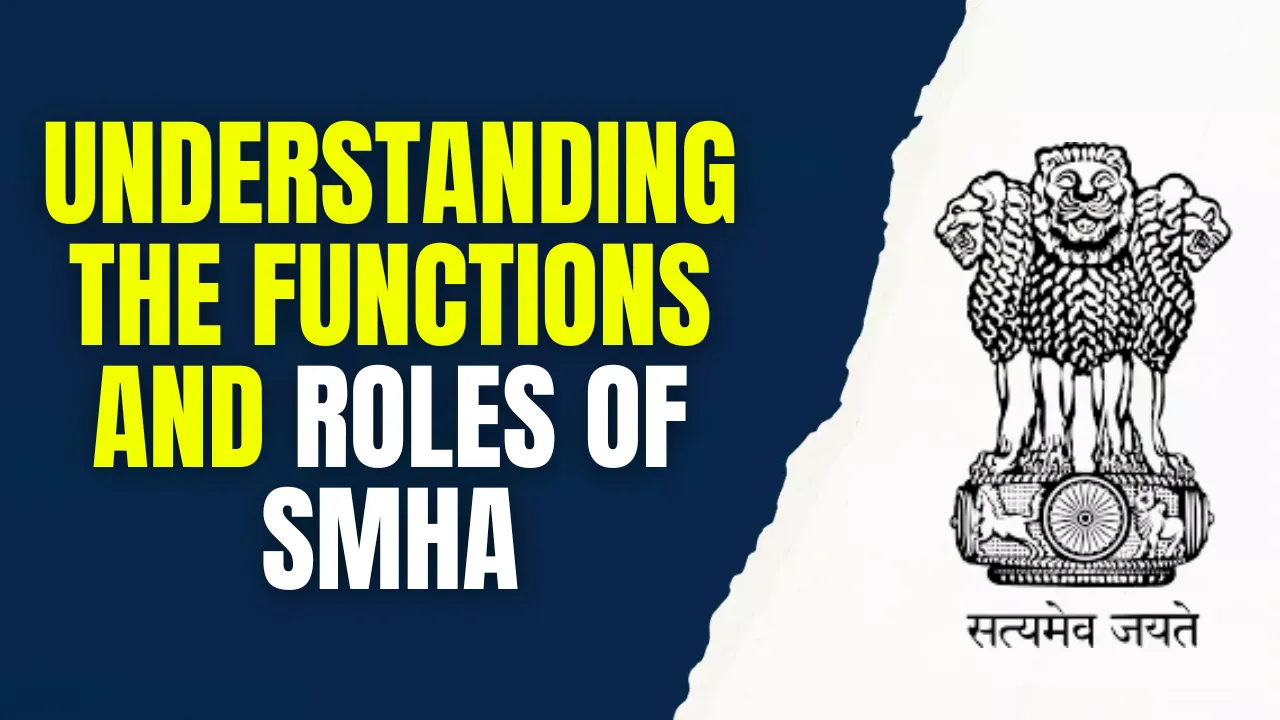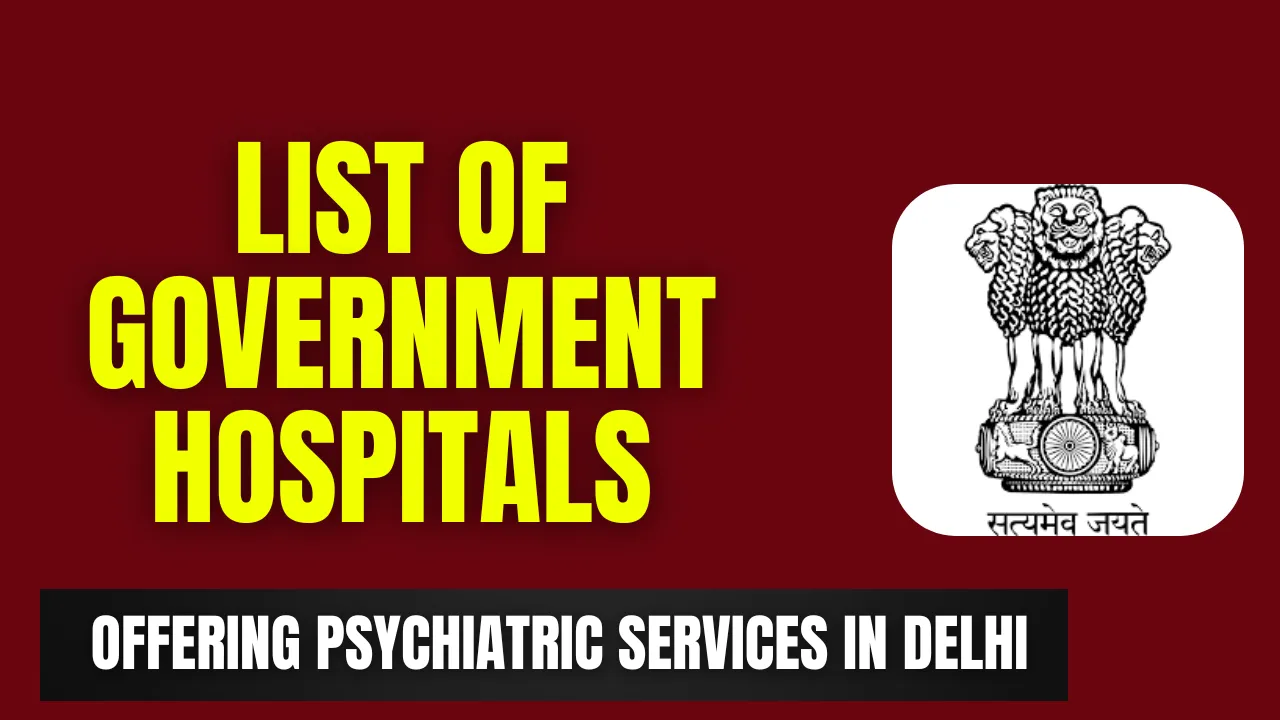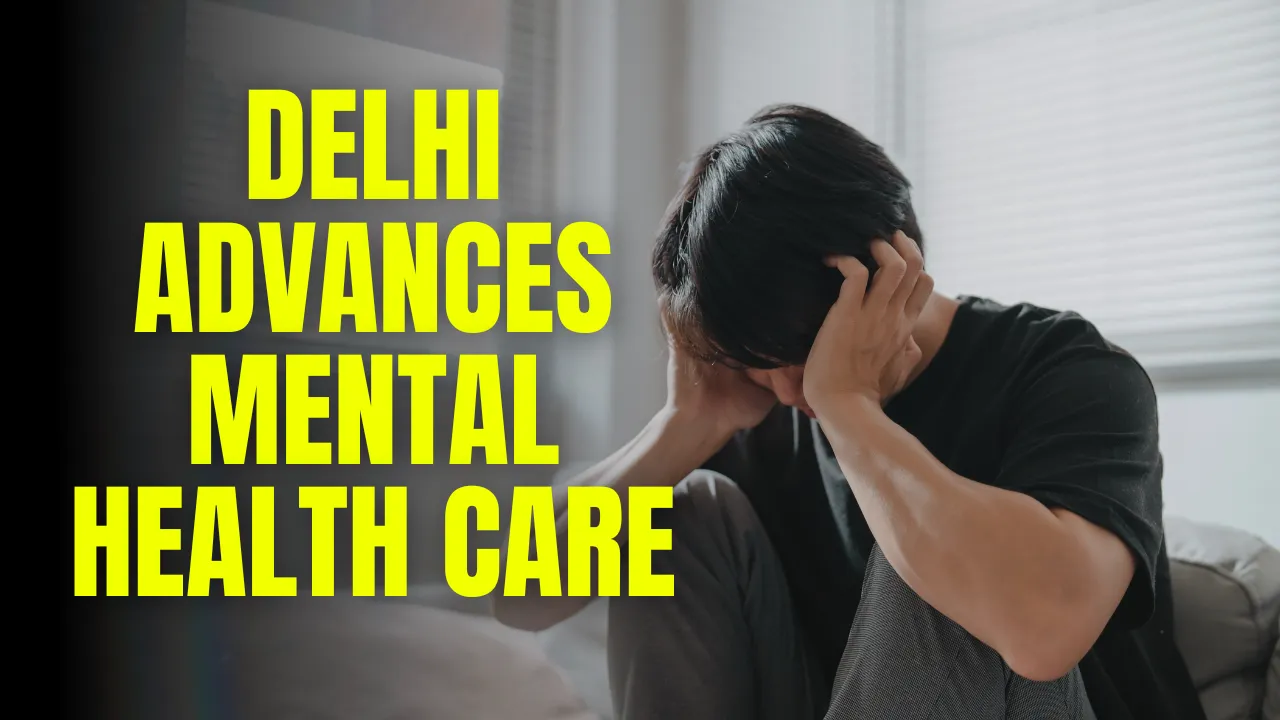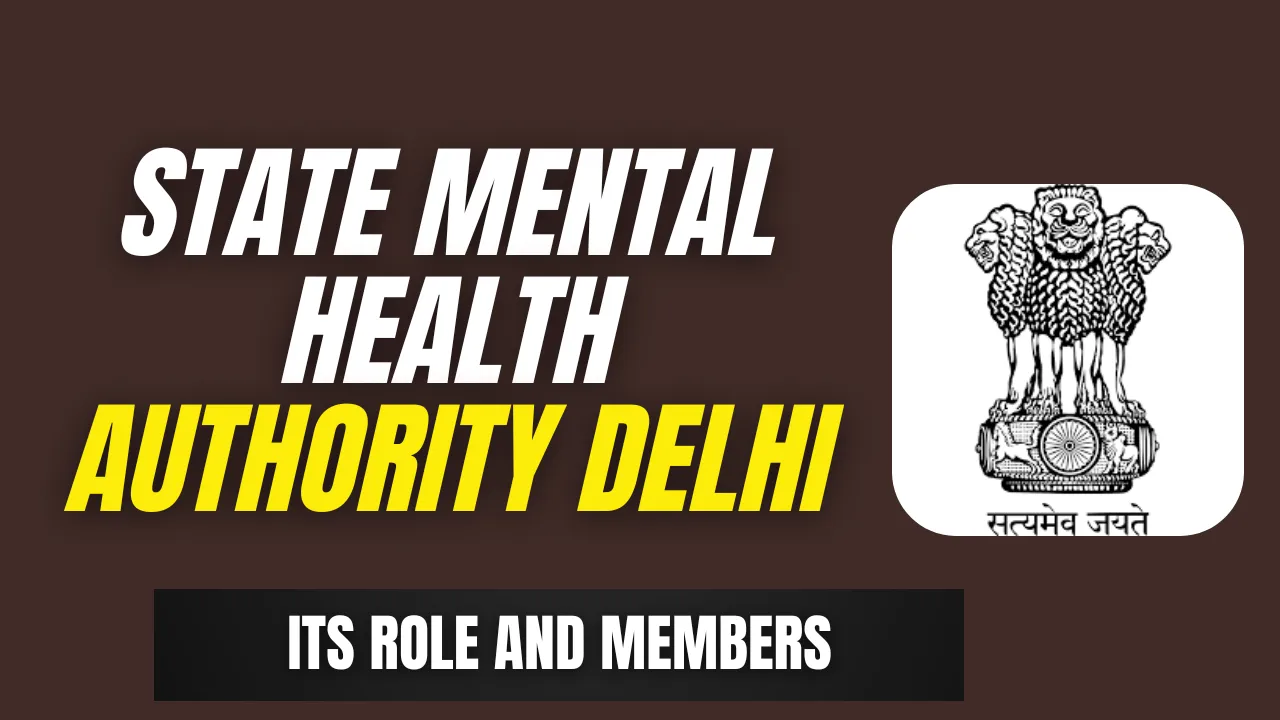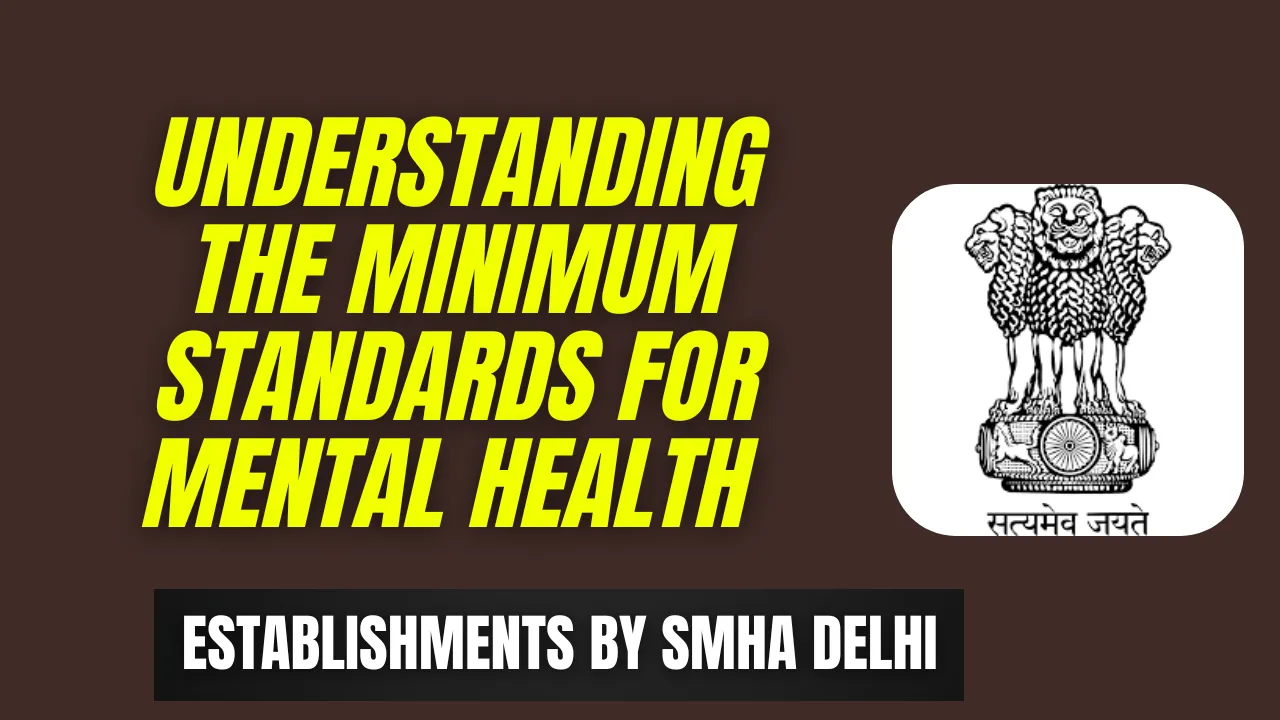SMHA: The State Mental Health Authority (SMHA) plays a vital role in overseeing mental health services across Indian states, as outlined in the Mental Healthcare Act, 2017. This legislation has significantly expanded the functions and responsibilities of SMHA, moving beyond basic licensing and inspection duties to a broader role that includes regulation, service development, and inter-sectoral coordination. The aim is to improve the quality of mental health services and safeguard the rights of individuals with mental illnesses.
This article explores the key functions and roles of SMHA as defined by the Act, including its regulatory duties, development initiatives, and challenges faced in fulfilling these responsibilities. Understanding these roles is essential for ensuring effective mental health governance and compliance with the law.
Overview of the Mental Healthcare Act, 2017
| Aspect | Details |
| Enacted by | Parliament of India |
| Objective | To protect the rights of individuals with mental illnesses |
| Key Section for SMHA | Section 55 |
| Main Functions | Regulation, development, coordination |
| Governing Body | State Mental Health Authority (SMHA) |
The Mental Healthcare Act, 2017 was introduced to ensure that individuals with mental illnesses receive appropriate care and are protected from discrimination. The Act empowers SMHA to oversee mental health establishments and enforce standards of care.
Purpose and Role of the State Mental Health Authority (SMHA)
The primary role of SMHA is to implement the provisions of the Mental Healthcare Act, 2017 at the state level. This includes registering mental health establishments, setting service standards, protecting patients’ rights, and ensuring that mental health professionals meet required qualifications. The SMHA also acts as a bridge between different sectors, coordinating efforts to improve mental health services and address issues such as stigma and lack of awareness.
Functions of SMHA as per Section 55 of MHA 2017
Registration and Regulation of Mental Health Establishments
One of the core functions of SMHA is to register all mental health establishments in the state, except those excluded under Section 43 of the Act. It must maintain and publish a comprehensive register of these establishments. SMHA is also responsible for supervising these facilities to ensure compliance with the standards of care set forth by the Act.
Development of Quality Norms and Service Provision
SMHA has the authority to develop and enforce norms for the quality of services provided by mental health establishments. This includes creating guidelines for infrastructure, treatment protocols, and the qualifications of healthcare providers to ensure that patients receive effective and safe care.
Registration of Mental Health Professionals
Another critical function of SMHA is to register clinical psychologists, psychiatric nurses, and social workers, enabling them to practice legally within the state. This process involves verifying their qualifications and maintaining a publicly accessible list of registered professionals.
Training and Awareness Initiatives
SMHA is responsible for conducting training programs for healthcare providers, law enforcement officers, and other relevant personnel. These initiatives are designed to educate them about the provisions of the Mental Healthcare Act, 2017 and to promote a better understanding of mental health issues.
Additional Functions Assigned by the State Government
In addition to the functions explicitly stated in the Act, the SMHA can be assigned further responsibilities by the state government. These may include special projects focused on expanding mental health services or improving service delivery standards.
Envisaged Roles and Functions of SMHA
Expansion of SMHA’s Role beyond Licensing and Inspection
The Mental Healthcare Act, 2017 has broadened the scope of SMHA’s role to include quality assurance, human rights protection, and service development. This expansion reflects a more holistic approach to mental health governance, emphasizing not just compliance but also improvement of service quality.
Key Focus Areas under MHA 2017
The Act outlines several focus areas for SMHA, including developing service standards, protecting patients’ rights, raising public awareness about mental health, and ensuring that mental health professionals receive adequate training.
Regulatory Role of SMHA
Setting Quality Standards for Mental Health Facilities
The SMHA is empowered to set minimum standards for mental health facilities to ensure that they provide safe and effective care. This includes guidelines for infrastructure, staffing, and treatment protocols.
Accreditation and Capacity Building
In addition to setting standards, SMHA is involved in accrediting mental health facilities and conducting training programs for mental health professionals. These efforts aim to improve the quality of care and ensure that mental health services are accessible and reliable.
Human Rights Assurance and Review Mechanisms
The protection of human rights is a significant part of SMHA’s regulatory role. The authority is responsible for setting up mechanisms to monitor compliance with the rights of individuals with mental illnesses and addressing grievances related to their treatment.
Ensuring Functional Boards in Mental Health Facilities
The SMHA must ensure that every mental health facility has a functional board of visitors. These boards act as oversight bodies to review the care provided and address any concerns raised by patients or their families.
Development of Mental Health Services
Public Awareness and Sensitization Campaigns
SMHA conducts public awareness campaigns to educate people about mental health issues, available services, and the rights provided under the Mental Healthcare Act, 2017. These campaigns aim to reduce stigma and encourage individuals to seek help.
Role of NGOs in Mental Health Service Delivery
SMHA collaborates with NGOs to expand the reach of mental health services. NGOs assist in managing halfway homes, providing outreach services, and supporting the rehabilitation of individuals with mental illnesses.
Legal Assistance for Mentally Ill Patients
The SMHA works with agencies like the Legal Services Authority to ensure that individuals with mental illnesses have access to legal aid. This includes assistance for involuntary treatment cases and addressing grievances related to their rights.
Special Assistance Schemes for Outreach Services
To support the rehabilitation of homeless individuals with mental illnesses, SMHA implements special assistance schemes. These initiatives aim to provide street-based outreach services, ensuring that these individuals receive proper care and support.
Challenges Faced by SMHA
Regulatory Challenges
Ensuring compliance with the Mental Healthcare Act, 2017 across numerous establishments is a significant challenge for SMHA, particularly given the limited resources available.
Funding and Resource Limitations
SMHA often faces budgetary constraints, which limit its ability to expand services, conduct training, and improve infrastructure in mental health facilities.
Coordination and Implementation Issues
Coordinating with various government departments, NGOs, and private sector organizations to implement mental health programs effectively remains a complex task for SMHA.
Conclusion
The Functions and Roles of SMHA, as defined by the Mental Healthcare Act, 2017, are comprehensive and crucial for improving mental health services across states. By focusing on regulation, development, and coordination, SMHA ensures that mental health services are not only accessible but also of high quality and respectful of patients’ rights. Addressing the challenges faced by SMHA and strengthening its resources can significantly improve mental health outcomes for individuals across the country.
Frequently Asked Questions (FAQs)
What is the main role of SMHA?
SMHA’s main role is to regulate mental health establishments, ensure quality service delivery, and protect the rights of individuals with mental illnesses.
How does SMHA ensure quality in mental health services?
SMHA sets standards for care, accredits facilities, and conducts regular inspections to ensure compliance with the Mental Healthcare Act, 2017.
What is the role of NGOs under SMHA’s framework?
NGOs assist in outreach services, rehabilitation, and managing mental health homes in collaboration with SMHA.
What challenges does SMHA face?
Key challenges include funding limitations, regulatory compliance issues, and difficulties in coordinating with multiple sectors.
How can SMHA improve its services?
Increasing funding, enhancing training programs, and strengthening coordination with NGOs and government departments can help SMHA improve its services.
